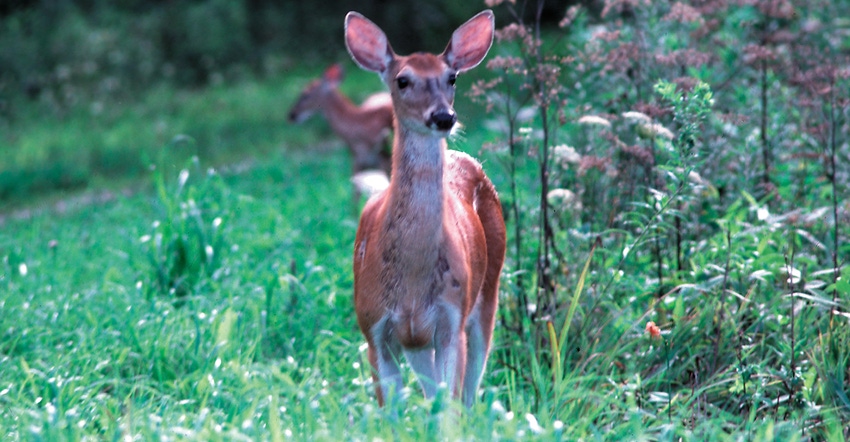April 21, 2017

On April 14, the Michigan Department of Agriculture and Rural Development designated parts of five Michigan counties as a “Potential High Risk Area” for bovine tuberculosis.
The designation is a result of four free-ranging white-tailed deer testing positive for bovine TB, as confirmed by the Michigan Department of Natural Resources. The deer were located in Iosco, Oscoda, Presque Isle and Roscommon counties.
All impacted herd owners are being contacted by MDARD to schedule testing. A meeting to discuss the Potential High Risk Area designation and the bovine TB Program will be 7 p.m. April 24 at Allis Township Hall, 20018 W. 638 Highway in Onaway.
A Potential High Risk Area is established when a free-ranging deer tests positive for bovine TB. This designation requires all cattle and bison herds located within a 6.2-mile radius of a TB-positive deer to be tested for bovine TB within six months. Cattle and bison herds are tested to ensure the disease has not spread from local deer to cattle or bison, which not only protects Michigan’s cattle industry, but also helps reassure Michigan’s trading partners that all necessary steps are being taken to protect the health of the herds.
More information on bovine TB can be found at michigan.gov/bovinetb.
Source: MDARD
You May Also Like




